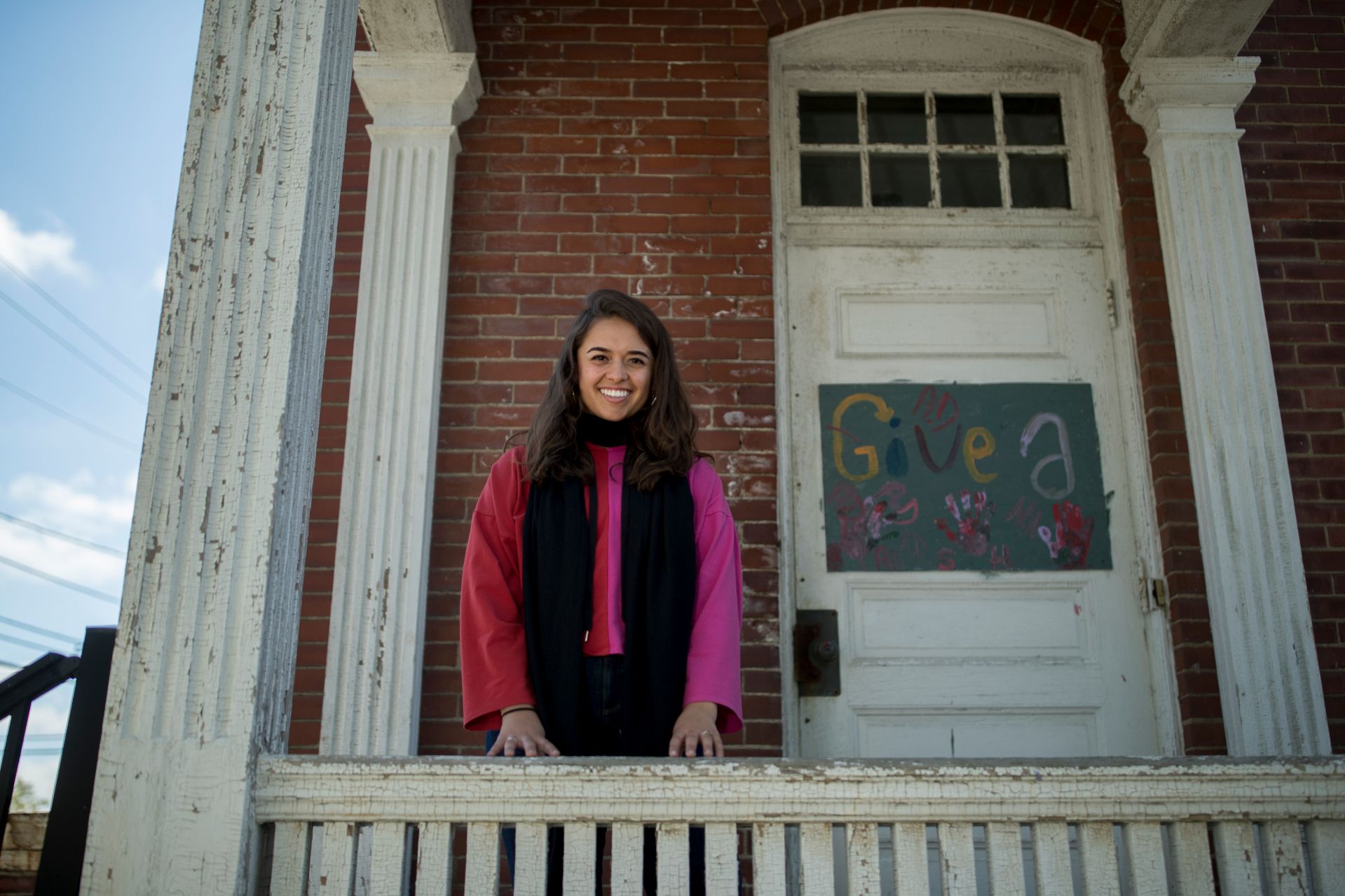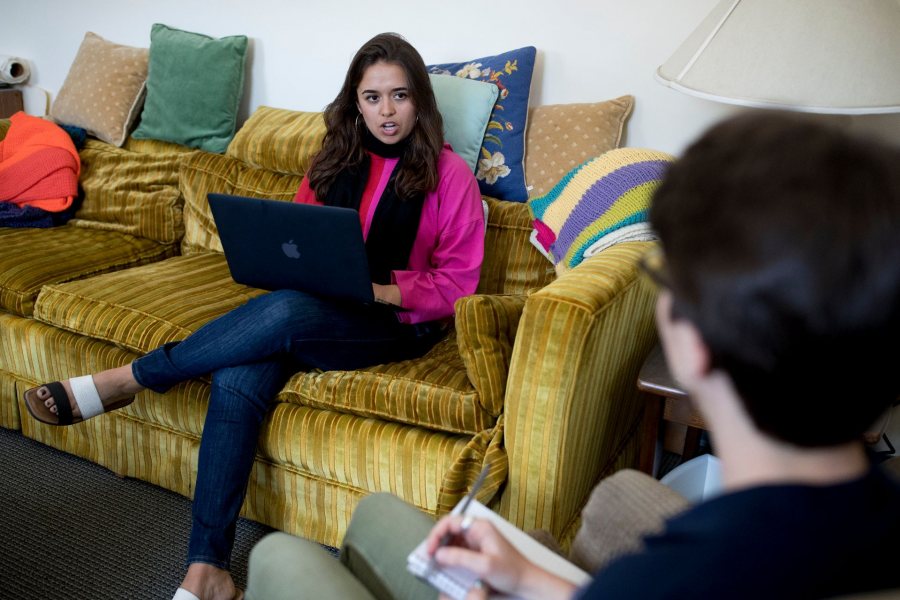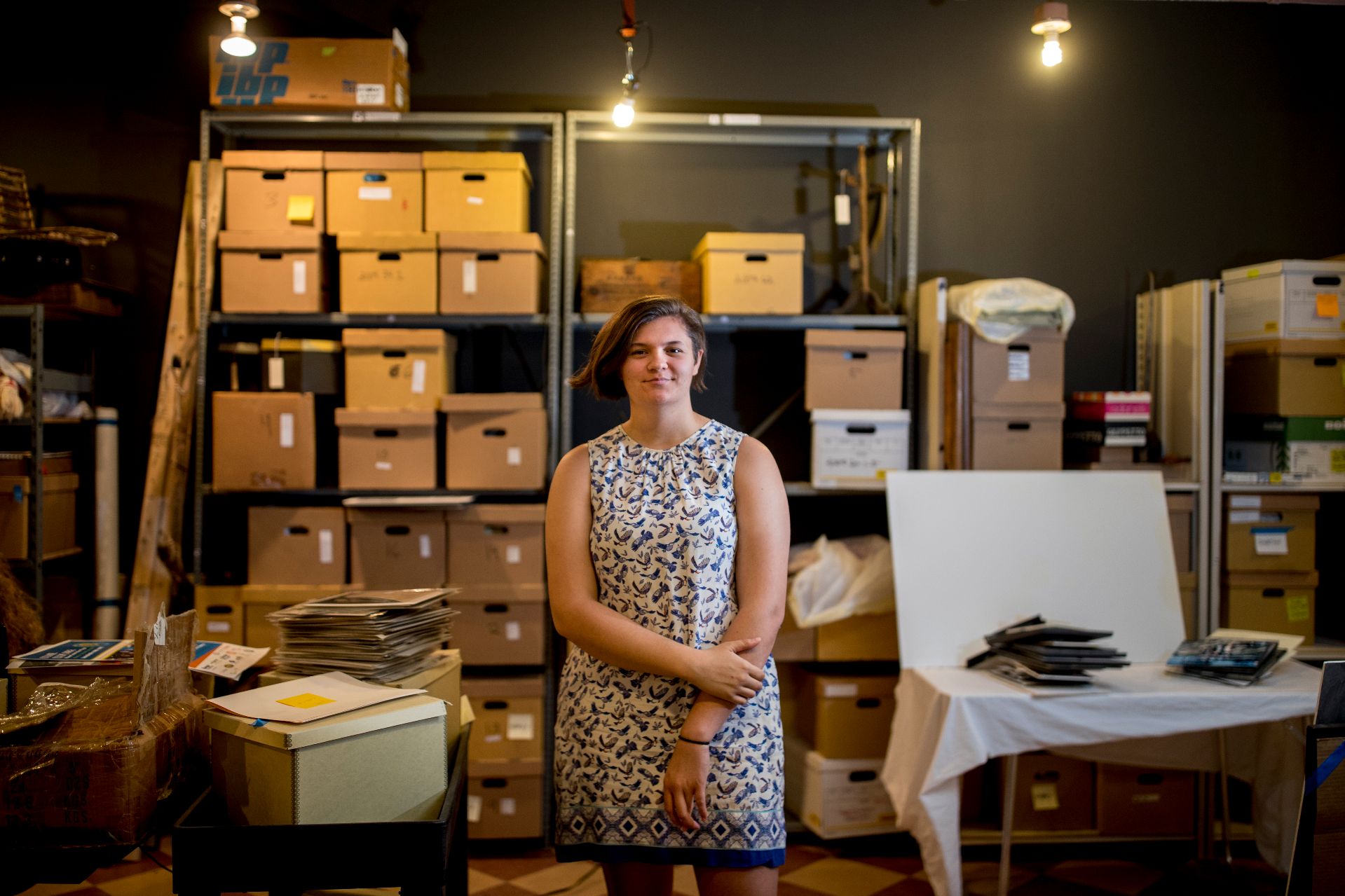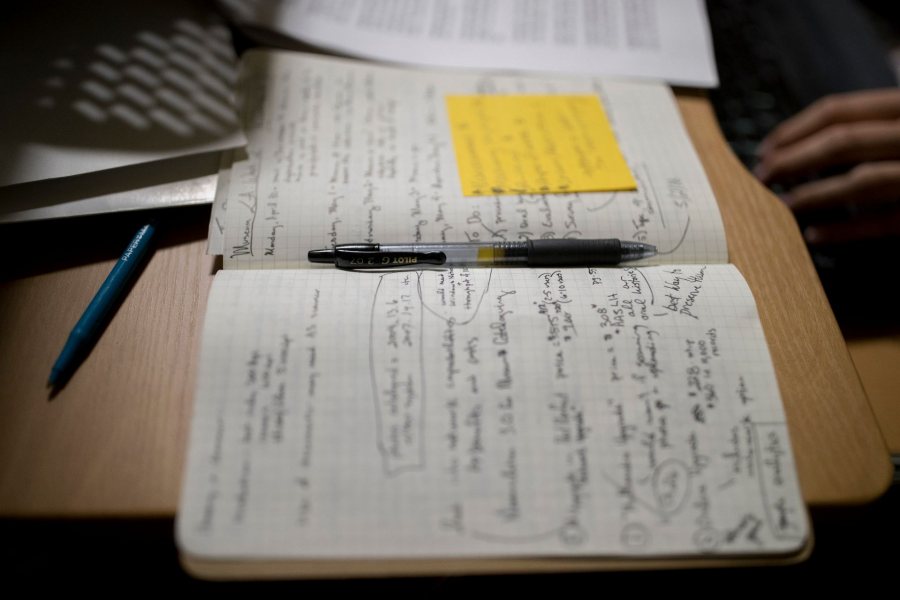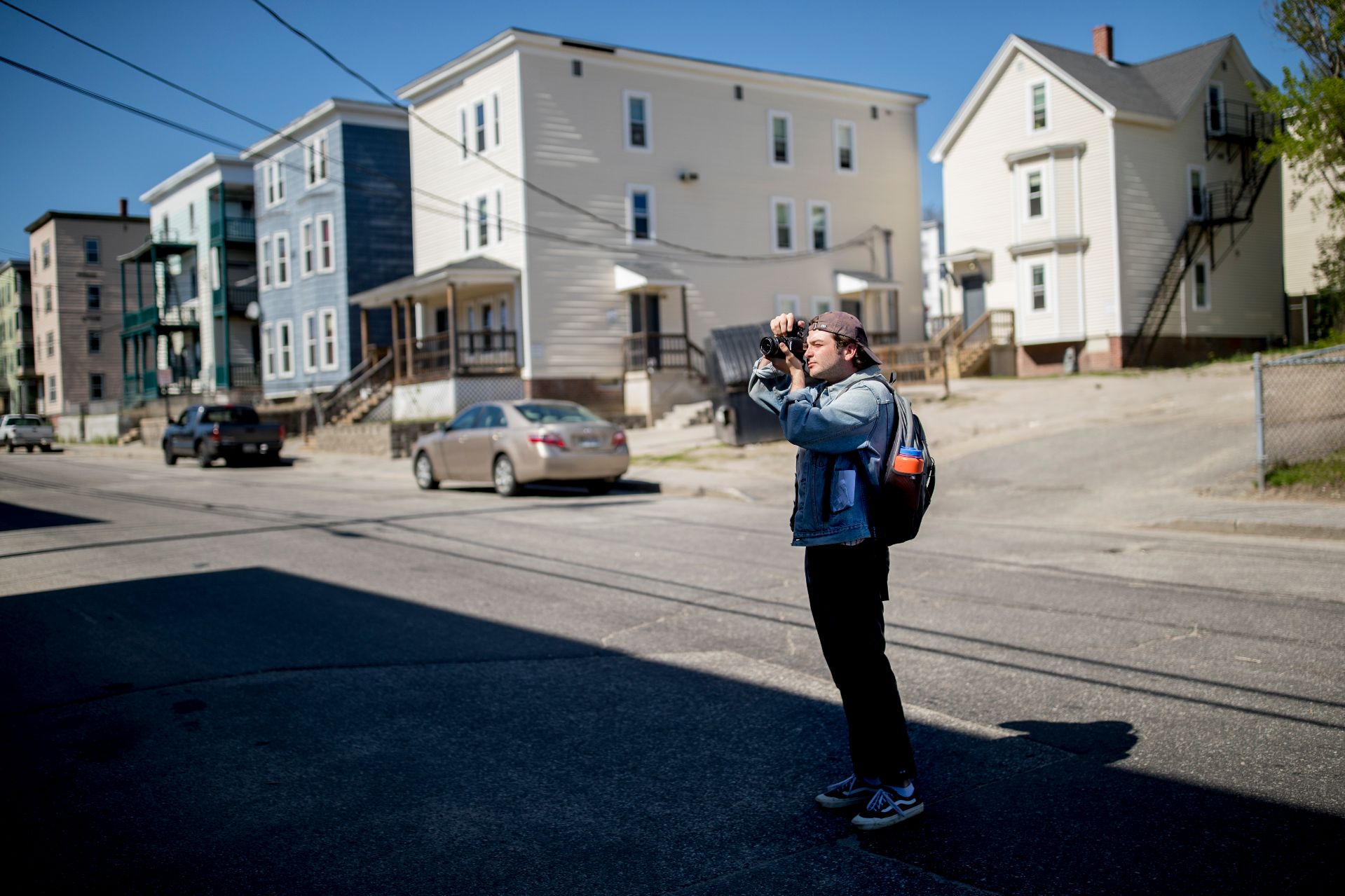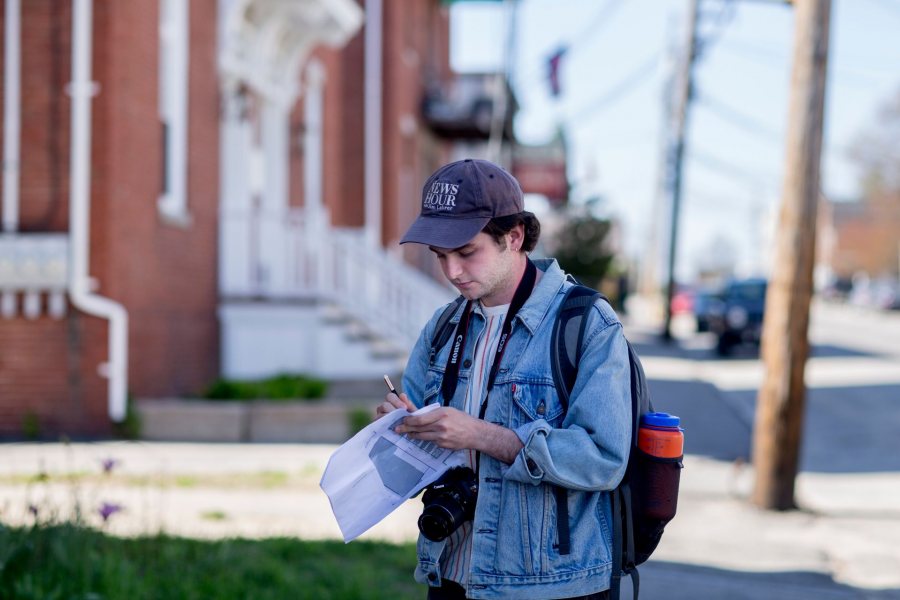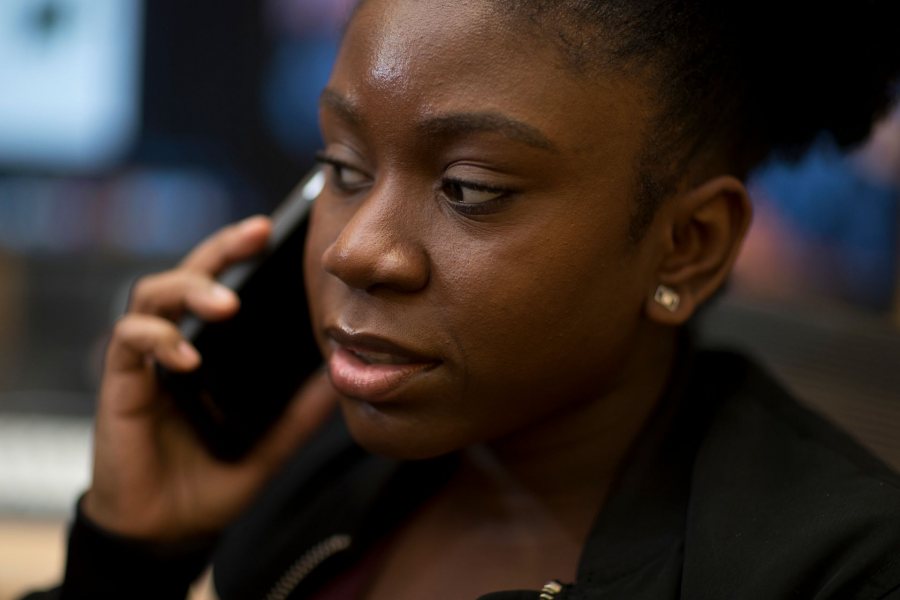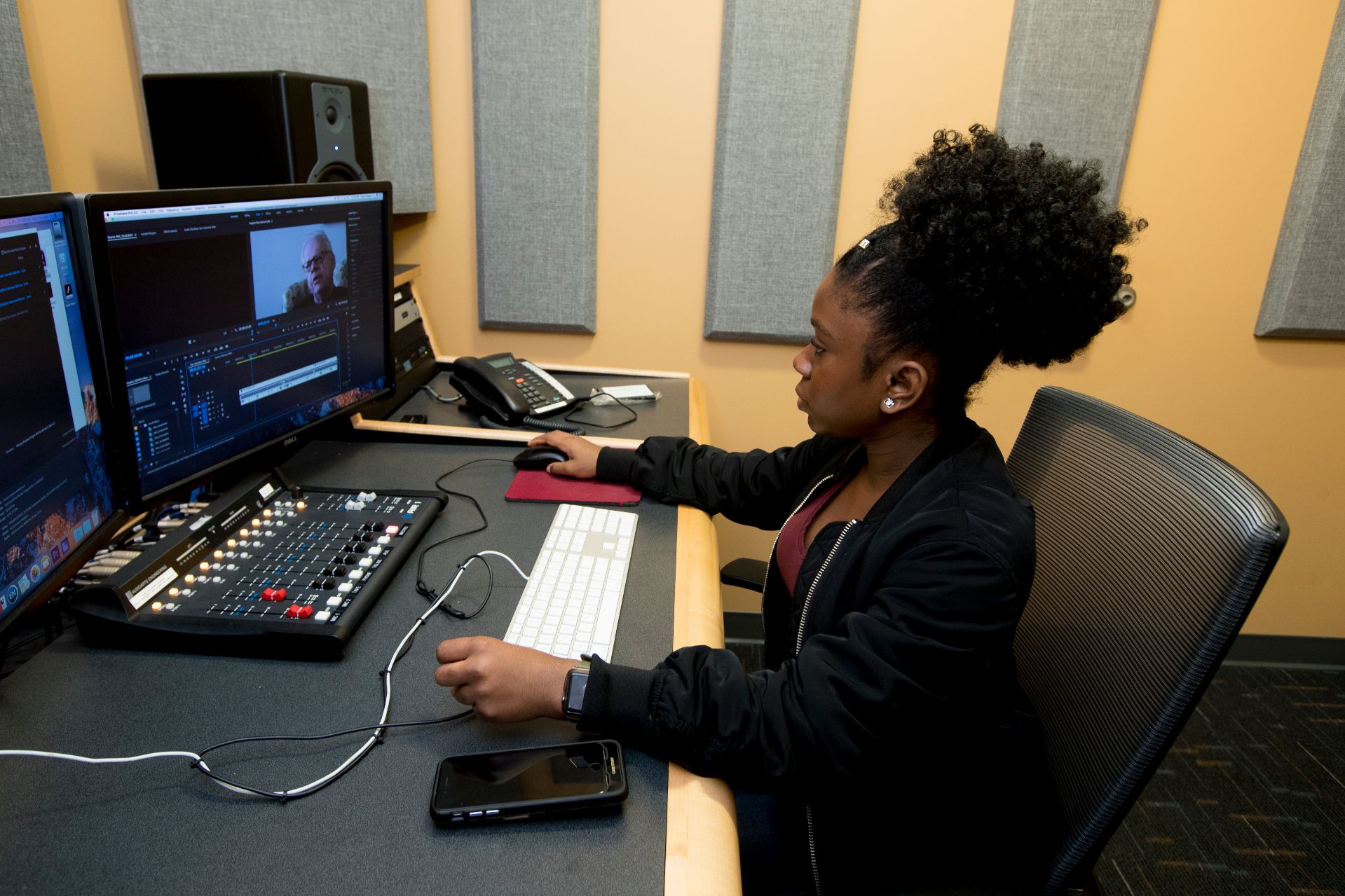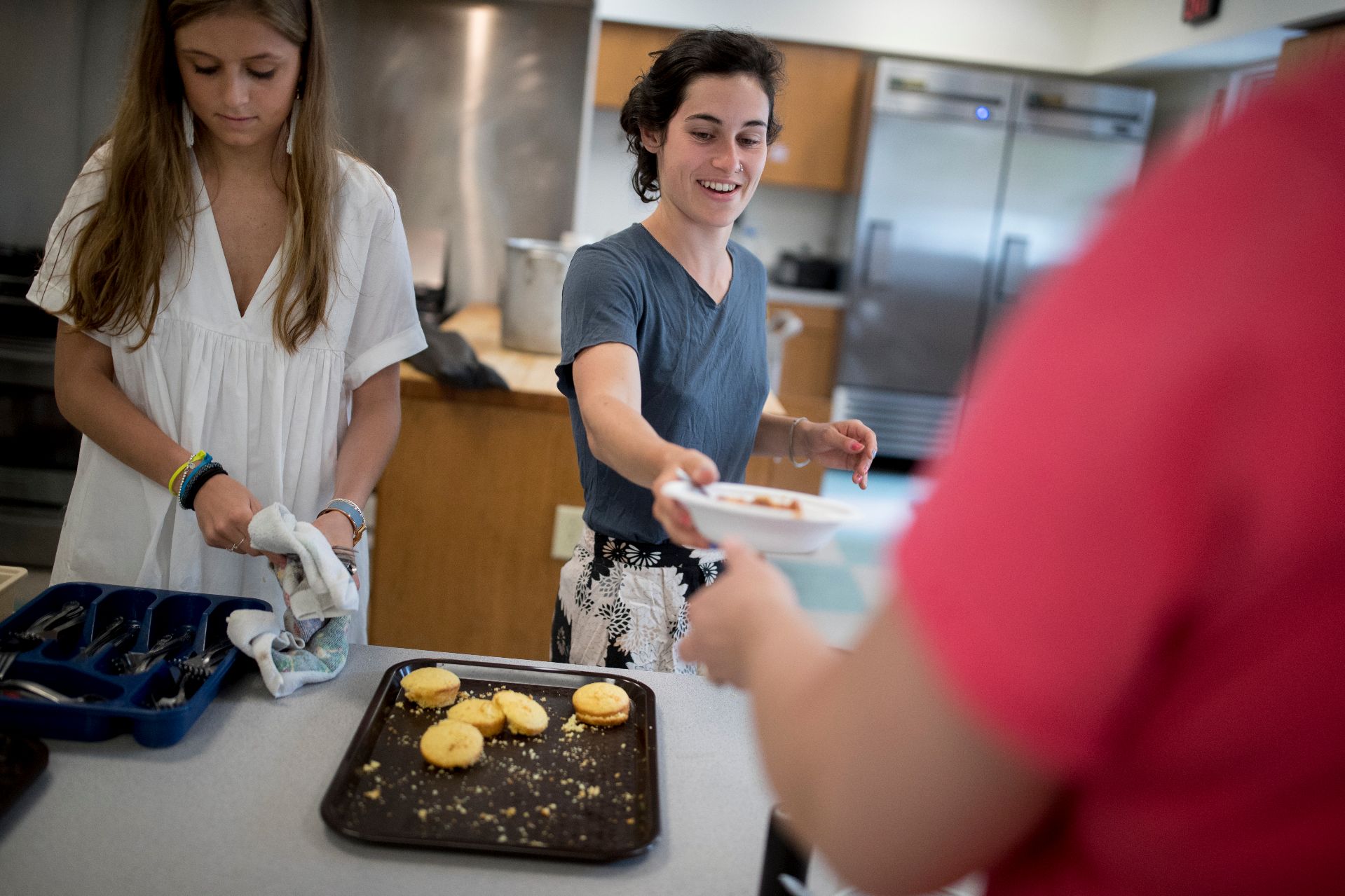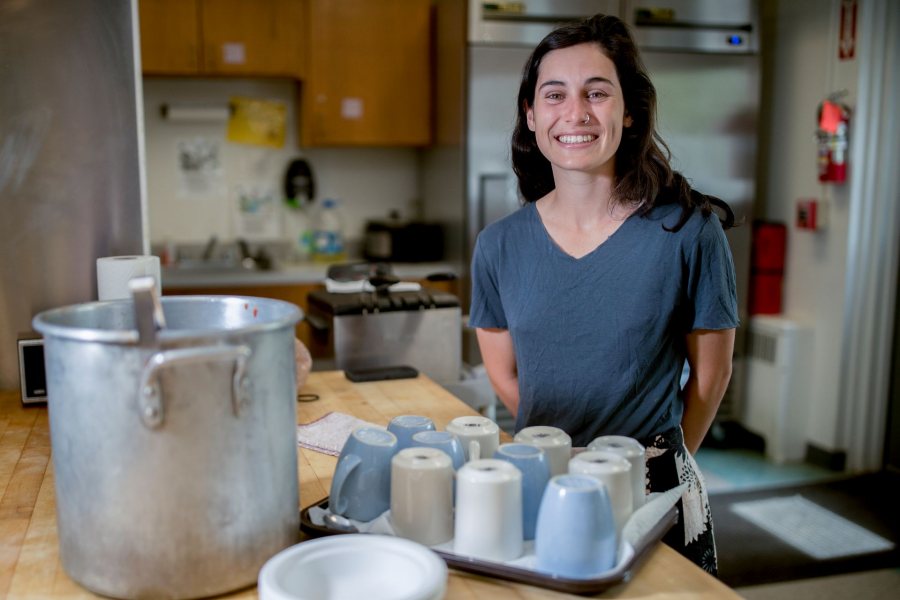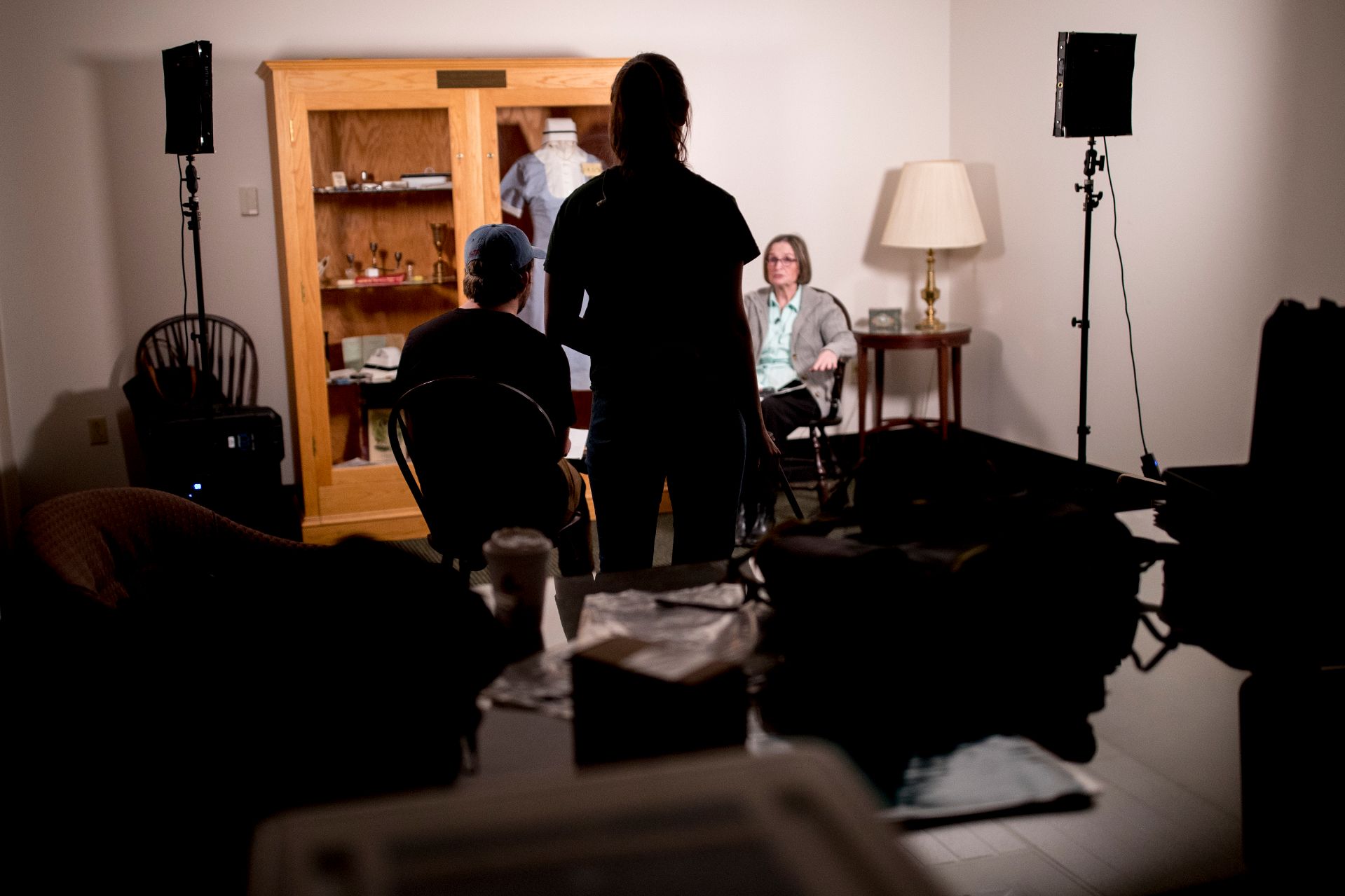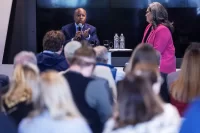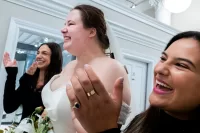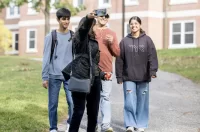
It’s the end of Short Term — and the end of a great start.
STA/RT, that is — the Short Term Action/Research Team, a working group comprising 10 students who head downtown every year for five-week projects with local partners.
With support from the Harward Center for Community Partnerships, the students bring skills, stick-to-itiveness, and, it turns out, a good dose of self-awareness to their work.
Meet a few of this year’s STA/RT students and hear about the challenges and rewards of their projects:
Zsofia Duarte ’18
Hometown: Portland, Maine
Major: Environmental studies
Partner: Center for Wisdom’s Women
Project: Develop a volunteer program plan for Sophia’s House, a residence that supports and empowers women who are survivors of addiction, trafficking, and incarceration through holistic healing in a shared community.
Zsofia says: As with most relationships in life, there is a time to listen with empathy and a time to listen to solve problems.
During my project, I interviewed women who use the services of Wisdom’s Women and women who are incarcerated locally. Initially during these interviews, I was eager to leave every conversation with concrete action steps that I could type into my final report.
Eventually, I learned that a specific type of listening — empathetic listening — was more appropriate and more effective in this research setting. In becoming a companion to the women, I was able to create a more effective volunteer program plan.
Allison Cormier ’19
Hometown: Deer Isle, Maine
Major: Classical and medieval studies
Partner: Museum L-A
Project: Work with the museum’s coordinator of collections and exhibits to create a plan — including support documents and procedures — for a digital collections project.
Allison says: Community-engaged work takes a community. It is not something that you can accomplish alone or just with the help of your partner organization. You certainly can’t go into a project thinking you’re going to step in and magically make everything happen according to plan. This Short Term I learned to go with the flow and pull together a product from an idea.
Zev Carter ’18
Hometown: Mattituck, N.Y.
Major: Politics
Partner: Healthy Homeworks
Project: Through photography and reviewing real estate records, contribute to a database for Lewiston’s downtown neighborhood that seeks to identify safe and affordable housing.
Zev says: Taking photographs of Lewiston’s housing stock and pulling public records on bank liens or recent renovations are not the most challenging tasks, but that misses the point. Doing hands-on, self-evident work in Lewiston’s downtown, I found myself feeling and thinking about things I didn’t expect. I talked with folks who reoriented my perspective. And I redoubled my efforts.
Certainly, there is satisfaction from reading a book or writing a paper. But I now know not to forget that even the more prosaic experiences can in fact change my perspective and bolster my commitment to the task at hand.
Rachel Chappell ’18
Hometown: Baltimore
Major: Sociology
Partner: Catholic Charities’ prisoner re-entry program, REPAIR (Returning Ex-Prisoners: Aid, Information, Reintegration)
Project: Create promotional materials, including a video, to highlight REPAIR’s mission to support men and women re-entering communities from incarceration.
Rachel says: I’ve worked in Bates’ Digital Media Studios since my first year, so I know video-production terminology. I’m privileged to have that knowledge.
To accomplish the goal of mutually beneficial community engagement — not one-sided community service — I had to reevaluate how I explained video production and what goes into making an effective video whose information is accessible for everyone. Once we all had this knowledge, I had a better idea of my partner’s needs — what they wanted the video to be like and how I could execute it in the most efficient way possible.
Sophia Thayer ’18
Hometown: West Boothbay Harbor, Maine
Major: History, and gender and sexuality studies
Partner: Lewiston Housing Authority
Project: Develop a food security plan for Blake Street Towers, public housing for senior citizens and younger disabled people.
Sophia says: You need to listen and engage with the people you are working with. Recognizing and responding to personal experiences is vital in producing relevant and successful outcomes.
Matthew Glasgow ’19 and Courtney Porfido ’18
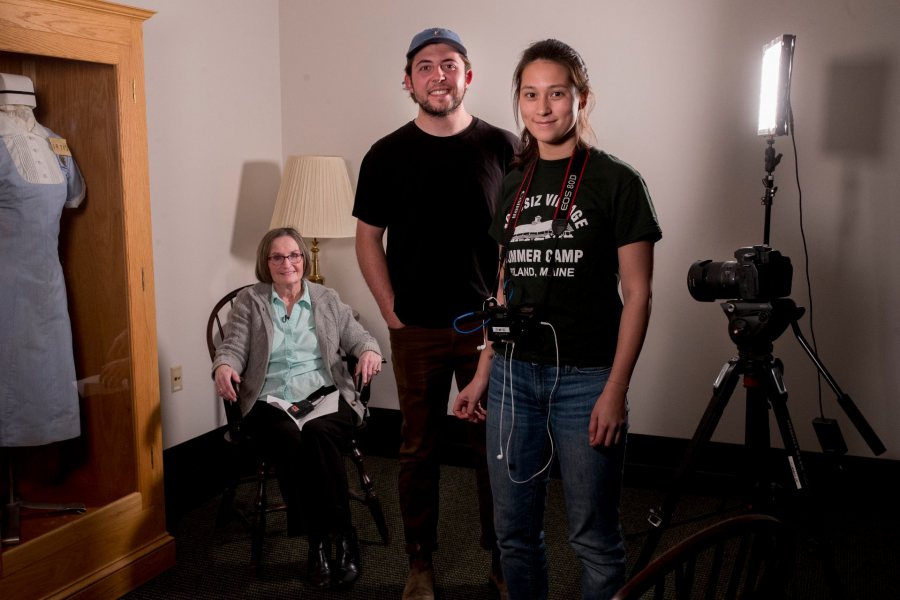
Matthew Glasgow ’19 and Hannah Porfido ’18 during an oral history session with nurse Patti Dyer. (Phyllis Graber Jensen/Bates College)
Hometowns: Salt Lake City (Glasgow); Ramsey, N.J. (Porfido)
Majors: Sociology (Glasgow); psychology (Porfido)
Partner: Central Maine Medical Center
Project: Interview older alumni of the Maine College of Health Professions to capture experiences, viewpoints, and memories. Founded in 1891, MCHP offers programs in nursing, nuclear medicine, radiologic technology, and computed tomography.
Matthew says: Community-engaged work is centered on reciprocity. The community and the community worker learn from each other and grow together. I have learned a lot about nursing, a profession that is pertinent to my Bates studies in medical sociology, while tangibly benefiting the nurses I am working with. It’s been cool to use my theory-based academic knowledge in a community setting.
Courtney says: My greatest learning experience was hearing a diverse group of people describe how their common education provided the backbone for their future success. Each individual’s story was nuanced and completely different, yet each individual drew a line connecting their successes and their education at MCHP.
